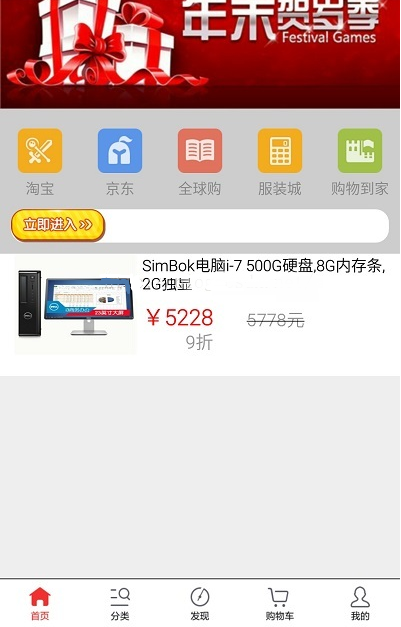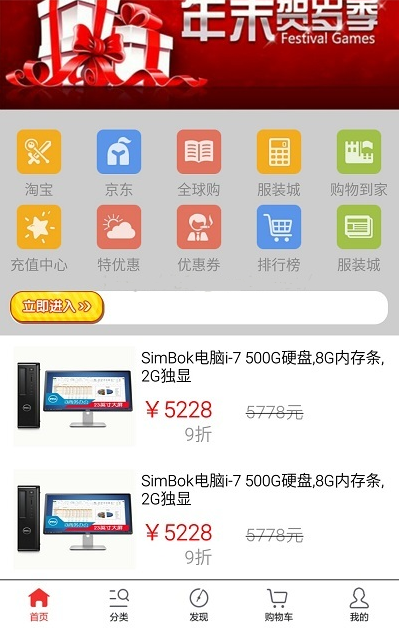最近为公司做的一个Demo里面用到了ScrollView嵌套了GridView和ListView,然而在嵌套的时候我发现GridView和ListView都是不能完全显示,显示的基本上都是单行的数据,最后查找资料和翻阅文档看
最近为公司做的一个Demo里面用到了ScrollView嵌套了GridView和ListView,然而在嵌套的时候我发现GridView和ListView都是不能完全显示,显示的基本上都是单行的数据,最后查找资料和翻阅文档看到原因是ListView和GridView的绘制过程中在ScrollView中无法准确的测量自身的高度,而且listVIew和GridView抢占了焦点,使得ListView和GrideView具有自身的显示的效果,这样就测量出显示一行条目即可的距离,其他的条目根据自身的滑动显示。
我的XMl的部分代码如下:
<ScrollView
android:layout_height="match_parent"
android:layout_width="fill_parent"
android:scrollbars="none"
>
<LinearLayout
android:layout_width="fill_parent"
android:layout_height="fill_parent"
android:background="#23000000"
android:orientation="vertical"
android:paddingTop="-1dp" >
<android.support.v4.view.ViewPager
android:id="@+id/home_pager"
android:layout_width="fill_parent"
android:layout_height="100dp" >
</android.support.v4.view.ViewPager>
<GridView
android:id="@+id/gv_home"
android:layout_width="fill_parent"
android:layout_height="wrap_content"
android:numColumns="5"
android:paddingBottom="10dp"
android:paddingTop="13dp" >
</GridView>
<LinearLayout
android:id="@+id/ll_clickin"
android:layout_width="fill_parent"
android:layout_height="30dp"
android:layout_marginBottom="10dp"
android:layout_marginLeft="10dp"
android:layout_marginRight="10dp"
android:background="@drawable/shape_home"
android:orientation="horizontal" >
<ImageView
android:layout_width="85dp"
android:layout_height="wrap_content"
android:src="@drawable/click_in" />
<TextView
android:layout_width="match_parent"
android:layout_height="fill_parent"
android:gravity="center"
android:singleLine="true"
android:text="限时抢购 ,快点进入吧!"
android:textSize="18sp" />
</LinearLayout>
<ListView
android:id="@+id/list_home"
android:layout_width="fill_parent"
android:layout_height="wrap_content"
android:background="#ffffff" >
</ListView>
</LinearLayout>
</ScrollView>
显示的效果是这样的其中的Listview和GridView是可以滑动的就是显示不全

用自己写的方法之后才显示出来了所有的条目

那就不再废话了 把我个人研究的代码呈上
首先是关于ListView的 (注意此方法必须方到SetAdapter()方法之后执行)
这是控件的查找
list_home = (ListView) view.findViewById(R.id.list_home); list_home.setAdapter(new MyListViewAdapter(grideview_List));
list_home.setFocusable(false);//词句加不加像也没有什么影响,我是加的 //setAdapter之后调用 getListViewSelfHeight(list_home);
这是getListViewSelfHeight(ListView youListview)
public void getListViewSelfHeight(ListView listView) {
// 获取ListView对应的Adapter
ListAdapter listAdapter = listView.getAdapter();
//健壮性的判断
if (listAdapter == null) {
return;
}
// 统计所有子项的总高度
int totalHeight = 0;
for (int i = 0, len = listAdapter.getCount(); i < len; i++) {
// listAdapter.getCount()返回数据项的数目
View listItem = listAdapter.getView(i, null, listView);
// 调用measure方法 传0是测量默认的大小
listItem.measure(0, 0);
totalHeight += listItem.getMeasuredHeight();
}
//通过父控件进行高度的申请
ViewGroup.LayoutParams params = listView.getLayoutParams();
//listAdapter.getCount() - 1 从零开始 listView.getDividerHeight()获取子项间分隔符占用的高度
params.height = totalHeight+ (listView.getDividerHeight() * (listAdapter.getCount() - 1));
listView.setLayoutParams(params);
}
下面是GridView的方法和ListView的测量的方法基本一样 但是listView是单行条目的不用在担心列的问题问GridView则是需要进行自己分行和自己分列的 所以要注意一下
gv_home = (GridView) view.findViewById(R.id.gv_home);
gv_home.setSelector(new ColorDrawable(Color.TRANSPARENT));
home_pager.setFocusable(false);
gv_home.setAdapter(new MyGrigeViewAdapter(grideview_List));
getGridViewSelfHeight(gv_home);
下面是getGridViewSelfHeight(GridView youGrideView)(这个方法能解决问题但是感觉不是很好灵活性太差 我用的获取的列数始终获取不到,有看神看到了 给我回复)
public void getGridViewSelfhetght(GridView gridView) {
// 获取GridView对应的Adapter
ListAdapter adapter = gridView.getAdapter();
if (adapter == null) {
return;
}
int totalHeight = 0;
for (int i = 0, len = adapter.getCount(); i < len; i++) {
// gridView.getCount()返回数据项的数目
View listItem = adapter.getView(i, null, gridView);
// 计算子项View 的宽高
listItem.measure(0, 0);
//此处方法并不好
//5其中5是我们在Xml中的android:numColumns="5"
//FontDisplayUtil.dip2px(MyGlobalApplication.getContext(),3)设置下边据
totalHeight += listItem.getMeasuredHeight()/5+FontDisplayUtil.dip2px(MyGlobalApplication.getContext(),3);
}
ViewGroup.LayoutParams params = gridView.getLayoutParams();
params.height = totalHeight;
gridView.setLayoutParams(params);
}
下面是FontDisplayUtil类
import android.content.Context;
/**
* dp、sp 、 px之间的相互转化的工具类
*/
public class FontDisplayUtil {
/**
* 将px值转换为dip或dp值,保证尺寸大小不变
*/
public static int px2dip(Context context, float pxValue) {
final float scale = context.getResources().getDisplayMetrics().density;
return (int) (pxValue / scale + 0.5f);
}
/**
* 将dip或dp值转换为px值,保证尺寸大小不变
*/
public static int dip2px(Context context, float dipValue) {
final float scale = context.getResources().getDisplayMetrics().density;
return (int) (dipValue * scale + 0.5f);
}
/**
* 将px值转换为sp值,保证文字大小不变
*/
public static int px2sp(Context context, float pxValue) {
final float fontScale = context.getResources().getDisplayMetrics().scaledDensity;
return (int) (pxValue / fontScale + 0.5f);
}
/**
* 将sp值转换为px值,保证文字大小不变
*/
public static int sp2px(Context context, float spValue) {
final float fontScale = context.getResources().getDisplayMetrics().scaledDensity;
return (int) (spValue * fontScale + 0.5f);
}
}
总结
以上就是这篇文章的全部内容了,希望本文的内容对大家的学习或者工作具有一定的参考学习价值,谢谢大家对自由互联的支持。如果你想了解更多相关内容请查看下面相关链接
